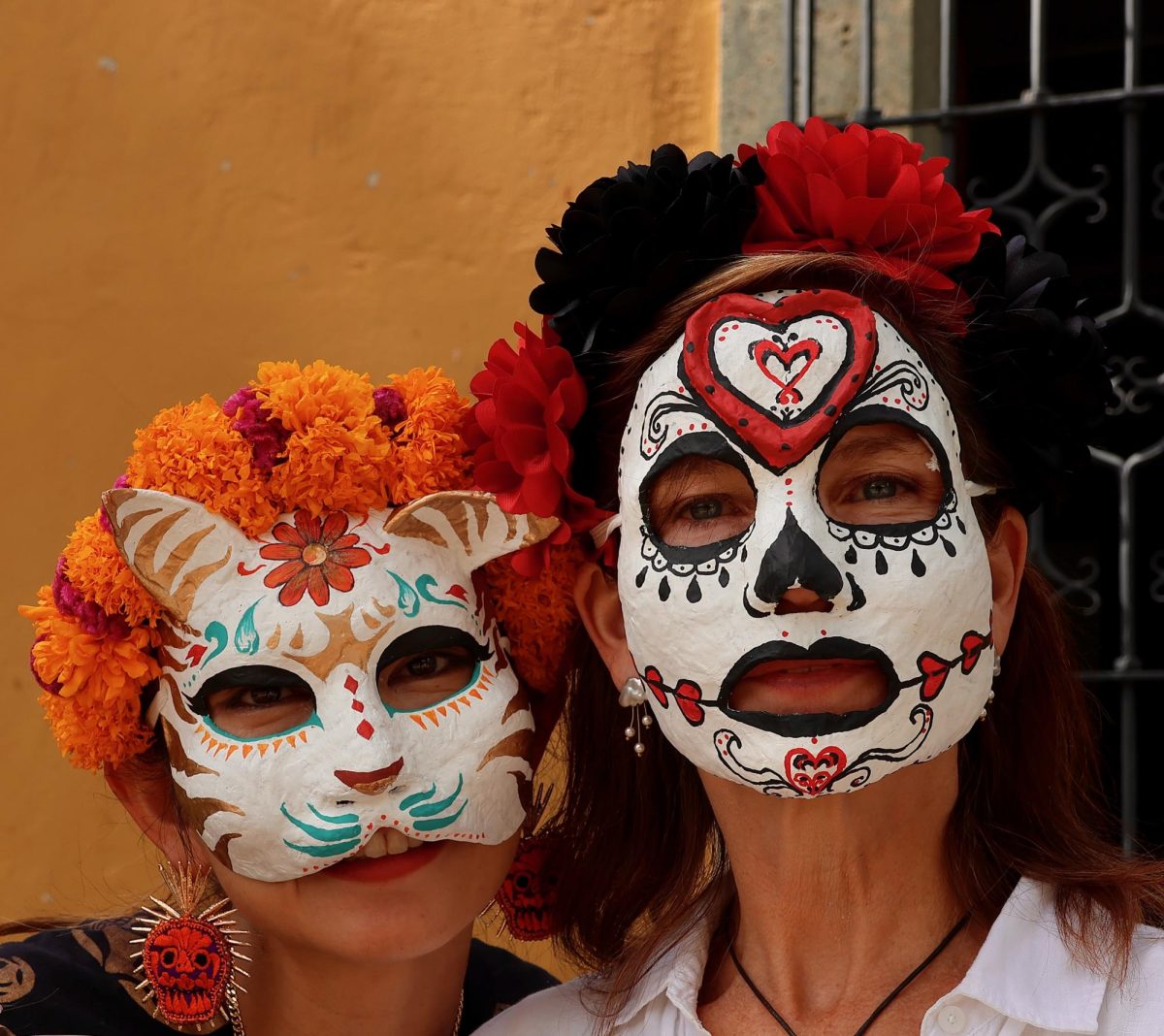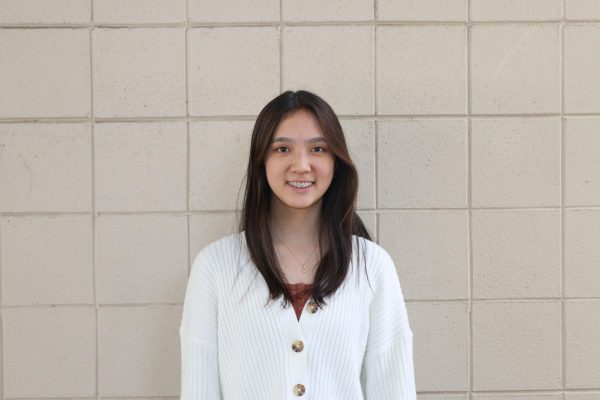If veteran teachers Amy Keys and Lisa Cochrum were more nervous than usual for the first day of school on Aug. 13, it was for a good reason: Keys was out for all of last year on a leave, while Cochrum took a leave for all of spring semester.
Keys — who has taught English at the school since 2011 — took a leave and spent the time abroad pursuing her interest in learning Spanish, while Cochrum — who has taught science here since 1993 — went on leave because of a family emergency.
Keys travels through Central America and Spain
With the ultimate goal of being able to read and speak fluently in Spanish, Keys and her husband stayed in Latin America for the fall semester and Spain for the spring semester.
Her husband, a sociology professor at UC Santa Cruz, had long been waiting to take a sabbatical (a paid leave for study or travel). He often studies Spanish-speaking populations in Watsonville and South Santa Cruz County, so he and Keys were excited to spend time in Latin America and Spain.
“I love learning languages — I took Spanish in high school and college, but I couldn’t say that I was fluent,” Keys said. “I wanted to attain the kind of fluency where I could, if not teach Spanish, read fluently in Spanish because there are a lot of Spanish writers that I love.”
Last fall, Keys and her husband spent most of their time in Mexico: both in Mexico City for a few weeks and in Oaxaca, where they stayed with friends whom they met on a previous trip to the city.
On a typical day, Keys attended intensive Spanish-learning schools — ICO in Oaxaca during fall and CLIC in Seville, Spain, during spring — from 9 a.m. to 1 p.m. After a lunch break, she would return for two hours of workshops on activities such as cooking, salsa dancing and mask making.
“I like that, for all of the workshops, they were all taught in the context [of the culture],” Keys said. “They were not just shallow, silly activities like finger painting. They told of how these types of art matters for the culture and where they come from.”
In Spain, Keys traveled around the borders of the country, spending most of her time in Seville. Keys notes that when people think of Spanish culture, they are generally thinking of Andalucia, the autonomous community where Seville is located. Flamenco originated there, and bullfighting was also a prominent form of entertainment, especially in the 12th century.
“All the streets have these huge, gorgeous orange trees all over the place; it was beautiful,” Keys said.
After her daily Spanish lessons and workshops, Keys spent her time visiting cafes to do homework, chatting with the locals or even running along a river in Seville.
After returning to the school after her year abroad, Keys has infused the valuable insight gained from her time spent as a student.
For example, she experienced first-hand the urge to use ChatGPT on assignments she didn’t want to write. Her views on the tool remain unchanged, however. Keys realized that if she actually didn’t want to do an assignment, she should rethink her decision about taking the class instead of using AI as an ethically questionable shortcut.
“I was thinking what it’s like to be a student — what it’s like to sit at the same desk for hours on top, to be frustrated,” Keys said. “I learned to just breathe and have faith that if I just keep working on it and give myself some grace. It will happen.”
Cochrum takes a semester off for family reasons
Two weeks before the start of the spring semester, Cochrum asked the district for — and was granted — a leave to help her mother readjust after the death of her stepfather. Following this abrupt decision, she scrambled to get all the plans ready for a sub.
“I had […] to get every single lab copied and all the equipment organized and lay it out with instructions of how to do the lab. It was a nightmare,” Cochrum said.
Working quickly to find a replacement substitute and prepare a semester’s worth of content, Cochrum collaborated with other science teachers and the administration to make sure everything went smoothly. Ultimately, they found a teacher named Stefany Anserlian, and students reported having a good experience with her.
Cochrum spent the semester helping her mom around the house and with financial affairs to get her into a stable spot. Even now that she has returned to the school, Cochrum continues to help her mom adapt to living independently.
“I’m an only child, and I’m the only living family member my mom has, so when the family is in a crisis, sometimes your entire world needs to stop,” Cochrum said. “While teaching the children here is lovely, I’m glad I took the semester off because I could not have invested in our students and my 84-year-old mother.”
Returning to the school for this fall, Cochrum confusedly found her room completely different from what she remembered. All of her materials were nicely organized, but not in her usual system, and she spent hours re-decorating the space with prized possessions like her Mythbusters mallet and Tiffany ring. Returning to teaching biology to dozens of rowdy freshmen also felt different after an 8-month break.
“I always say that teaching is like hiking up a hill,” Cochrum said. “I never stop hiking up a hill. I keep going until I reach the top to eat my food. But this time I stopped 31 miles up, and I still had five miles to go, but I had to stop. It was kind of hard, but I’m getting going again and I’m excited to be back. I got my boots underneath me; I got my poles going; and I’m hiking again.”































